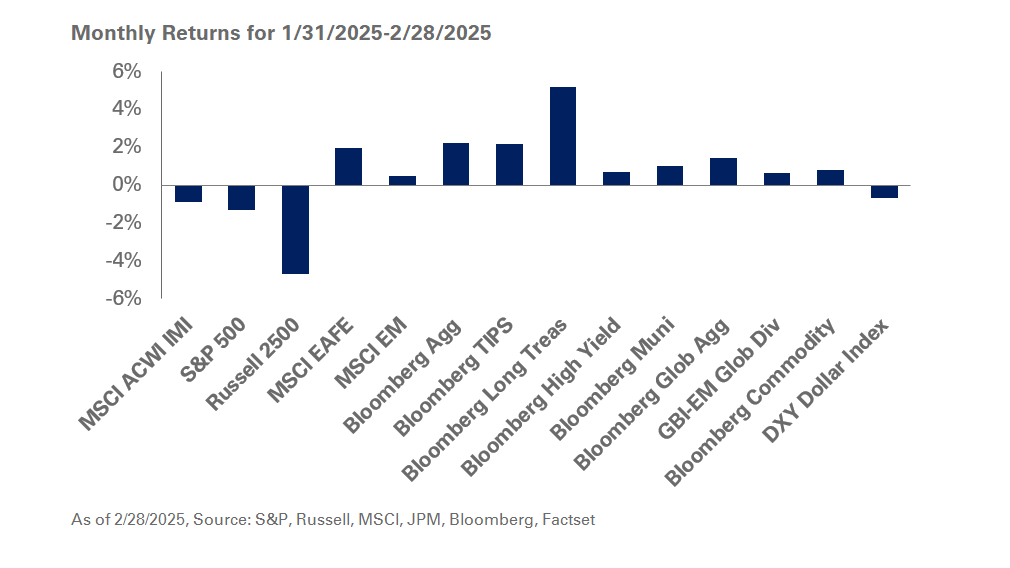As the Federal Reserve gears up for its March 22 meeting, we turn to Phillip Nelson, NEPC’s head of asset allocation, for insights into interest rates, the economy and the likelihood of a U.S. recession.
- The market and the Fed agree that interest rate hikes will continue after March. How much light will March’s announcement shed on rate hikes and how far will they continue into 2023?
We will probably see a 25-basis points hike in the March meeting, which will push up the Fed Funds rate to 5%, as the labor market—a key data point for the Fed—still shows a strong job market and robust wage growth.
Clarity around when and at what level we will see peak Fed Funds remains cloudy. Barring an inflation shock, we are unlikely to see 50-basis points increments from the Fed in 2023. The outlooks for both monetary policy and the market this year will be heavily data dependent, revolving around CPI and PCE numbers, and the labor market.
- The Fed will release its first summary of economic projections since December 2022. The markets are still aligned with December’s projections. Do you think this will change following March’s meeting?
We will see some changes in the economic projections as the Fed has a more accurate of 2023, given the health of the labor market. It will likely revise down projections for unemployment and we may see more optimistic growth estimates for 2023 as recessionary concerns are receding for the calendar year.
What’s unlikely to change is the Fed’s projections for long-term interest rates and its focus on the 2% inflation target. The most important data point we are looking at it is expectations for the Fed Funds rate for 2024. We are unlikely to see projections of a rate cut for 2023 with elevated Fed Funds rates holding at an above average level through 2024.
- As venture funding hits a nine year low, does this change your overall outlook on recommending private markets in 2023?
While private markets are not immune to the struggles currently facing the investment world, we remind investors that some of the most lucrative returns have been generated in vintage years marked by the current market dynamics.
Private markets will continue to reset through 2023 and now, more than ever, it is important to employ best practices in the space. Whenever possible, maintain regular and consistent pacing of annual commitments, which is a critical portfolio and risk management tool. We encourage investors to continue to commit to their private equity managers, even if it means making smaller commitments.
Like public markets, a liquidity-constrained market environment may offer an opportunity to gain exposure to previously inaccessible high-quality investment teams. In addition, we recommend investors review their overall portfolio liquidity profile to ensure the ability to meet capital calls in periods of market stress.
- Has NEPC’s economic outlook changed for the U.S.? What is the likelihood a potential recession?
We have downgraded the likelihood of a U.S. recession, barring an exogenous shock. Recent data — ranging from the continued strength in the labor market, positive indicators around consumer spending, and early signs of recovery in the housing industry—lead us to believe a recession isn’t on the cards for 2023.
The profile of the U.S. economy creates a challenging situation for the Fed as it balances a smooth landing for the economy while trying to manage inflation and the job market.



